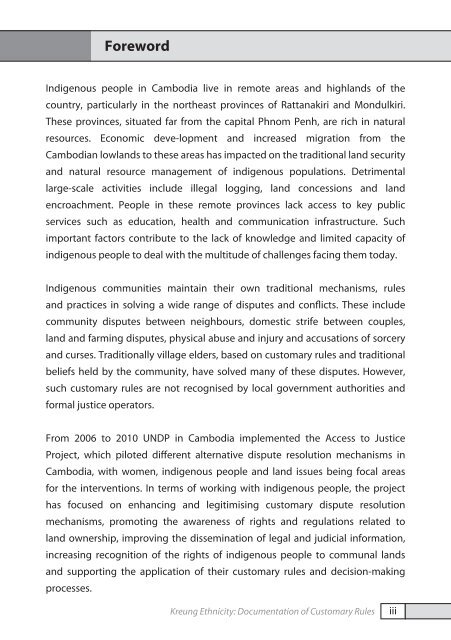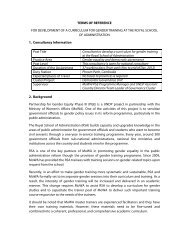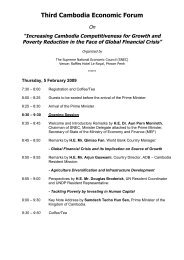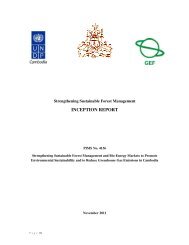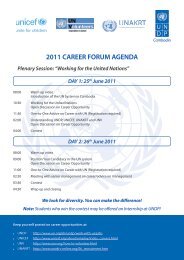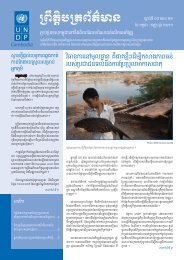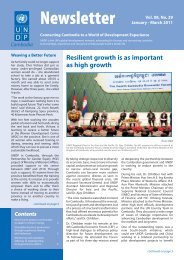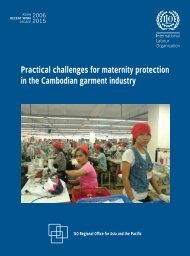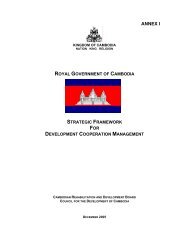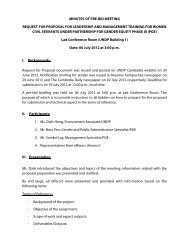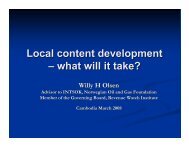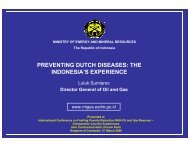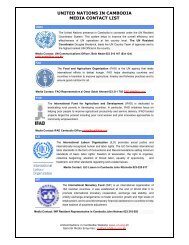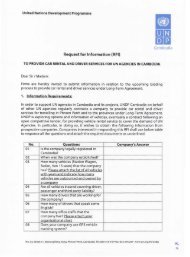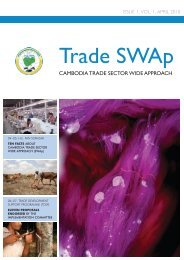Kreung Ethnicity - United Nations in Cambodia
Kreung Ethnicity - United Nations in Cambodia
Kreung Ethnicity - United Nations in Cambodia
You also want an ePaper? Increase the reach of your titles
YUMPU automatically turns print PDFs into web optimized ePapers that Google loves.
Foreword<br />
Indigenous people <strong>in</strong> <strong>Cambodia</strong> live <strong>in</strong> remote areas and highlands of the<br />
country, particularly <strong>in</strong> the northeast prov<strong>in</strong>ces of Rattanakiri and Mondulkiri.<br />
These prov<strong>in</strong>ces, situated far from the capital Phnom Penh, are rich <strong>in</strong> natural<br />
resources. Economic deve-lopment and <strong>in</strong>creased migration from the<br />
<strong>Cambodia</strong>n lowlands to these areas has impacted on the traditional land security<br />
and natural resource management of <strong>in</strong>digenous populations. Detrimental<br />
large-scale activities <strong>in</strong>clude illegal logg<strong>in</strong>g, land concessions and land<br />
encroachment. People <strong>in</strong> these remote prov<strong>in</strong>ces lack access to key public<br />
services such as education, health and communication <strong>in</strong>frastructure. Such<br />
important factors contribute to the lack of knowledge and limited capacity of<br />
<strong>in</strong>digenous people to deal with the multitude of challenges fac<strong>in</strong>g them today.<br />
Indigenous communities ma<strong>in</strong>ta<strong>in</strong> their own traditional mechanisms, rules<br />
and practices <strong>in</strong> solv<strong>in</strong>g a wide range of disputes and conflicts. These <strong>in</strong>clude<br />
community disputes between neighbours, domestic strife between couples,<br />
land and farm<strong>in</strong>g disputes, physical abuse and <strong>in</strong>jury and accusations of sorcery<br />
and curses. Traditionally village elders, based on customary rules and traditional<br />
beliefs held by the community, have solved many of these disputes. However,<br />
such customary rules are not recognised by local government authorities and<br />
formal justice operators.<br />
From 2006 to 2010 UNDP <strong>in</strong> <strong>Cambodia</strong> implemented the Access to Justice<br />
Project, which piloted different alternative dispute resolution mechanisms <strong>in</strong><br />
<strong>Cambodia</strong>, with women, <strong>in</strong>digenous people and land issues be<strong>in</strong>g focal areas<br />
for the <strong>in</strong>terventions. In terms of work<strong>in</strong>g with <strong>in</strong>digenous people, the project<br />
has focused on enhanc<strong>in</strong>g and legitimis<strong>in</strong>g customary dispute resolution<br />
mechanisms, promot<strong>in</strong>g the awareness of rights and regulations related to<br />
land ownership, improv<strong>in</strong>g the dissem<strong>in</strong>ation of legal and judicial <strong>in</strong>formation,<br />
<strong>in</strong>creas<strong>in</strong>g recognition of the rights of <strong>in</strong>digenous people to communal lands<br />
and support<strong>in</strong>g the application of their customary rules and decision-mak<strong>in</strong>g<br />
processes.<br />
<strong>Kreung</strong> <strong>Ethnicity</strong>: Documentation of Customary Rules<br />
iii


